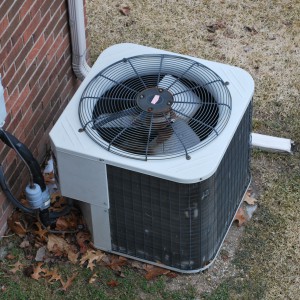
Let’s start with the one thing everyone knows about real estate at the moment. It is a sellers’ market. Whenever you take a mortgage out to buy property; all mortgage lenders require an appraisal. An appraisal is an unbiased estimate of the fair market value of the property. This is so lenders can ensure that the borrower is requesting an appropriate amount for the purchase. Something anyone should beware of when buying or selling, is the possibility of an Appraisal Gap.
With the real estate market today, buyers are purchasing homes above the market value. This leads to an Appraisal Gap which means you’ve agreed to pay more than the house is worth according to the appraiser. This seemingly unimportant term results in complications, delays, & sometimes losing out on your dream home.
So, what can you do when you find yourself with an Appraisal Gap?
Pay the Difference in Cash
You’ve put an offer in on the house but your mortgage lender won’t lend you more than the house is worth. Your first option is to pay the difference in cash. This means your down payment will be bigger than expected. You’ll have to cover the difference between the appraised value and the price, or risk having others buy the property you want, when you can’t or won’t go through with the sale.
Walk Away
This option is the least risky, but you’ll find yourself back in the same place as you were before. Needing a house, fast.
Renegotiate
You could ask the seller to cut the price to the appraised value or to split the difference with you. Unfortunately, in this seller’s market, you’re more likely to be told to take a hike than to be invited to the negotiation table.
Request a Review
If you think you’ve found errors in the appraiser’s report, you can request a review of the appraisal. Your agent can help with the research and paperwork but anything that drags out the buying process may lose you the house. After all, this seller most likely has offers from other buyers that can happen immediately and under more favorable terms.
Apply with Another Lender
You could also apply with another lender in the hopes of receiving a more favorable appraisal, but like requesting a review, this takes time, and you might get the exact same answer.
Or, you could eliminate the issue before it starts with Appraisal Gap Coverage.
But wait, you say, I already have an appraisal contingency in my home purchase contract. An appraisal contingency is not the same as appraisal gap coverage. A contingency says that the buyer or seller can call off the deal if the property is appraised for lower than the buyer offered. No problem, you’re covered, right?
Not exactly. In hot real estate markets, like we’re currently in, buyers will waive the appraisal contingency to make themselves more appealing to sellers.
Appraisal gap coverage is different. It is custom wording in the purchase contract that guarantees that you will pay the difference between the appraised value and the contract price, up to a certain amount, if an appraisal gap becomes an issue.
From the seller’s perspective, this lowers the risk of a financing-contingent deal falling through by guaranteeing an acceptable appraisal gap amount that can occur without giving the buyer a way out of the deal.
For the buyer, it makes their offer more compelling and allows them to walk away if the appraisal gap is bigger than the agreed-upon amount, which is clearly stated and outlined in the contract.
Buying a home in this market is complicated. Be sure to discuss all your options with The Columbus Team before submitting or accepting an offer and definitely before signing a contract!
There you have it. Everything you need to know about Appraisal Gaps and how to use them to your advantage. Happy House Hunting!





